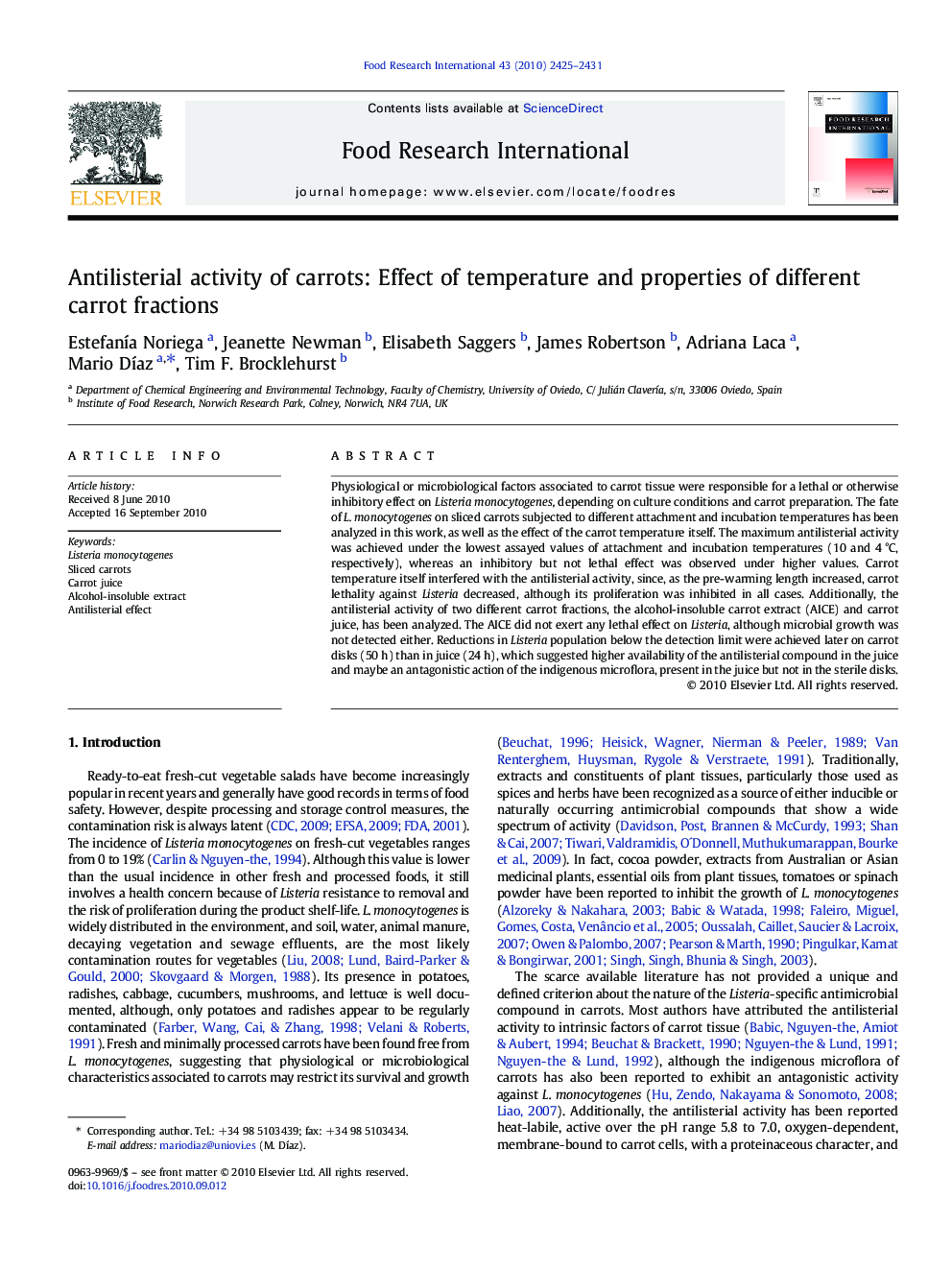| Article ID | Journal | Published Year | Pages | File Type |
|---|---|---|---|---|
| 4562547 | Food Research International | 2010 | 7 Pages |
Abstract
Physiological or microbiological factors associated to carrot tissue were responsible for a lethal or otherwise inhibitory effect on Listeria monocytogenes, depending on culture conditions and carrot preparation. The fate of L. monocytogenes on sliced carrots subjected to different attachment and incubation temperatures has been analyzed in this work, as well as the effect of the carrot temperature itself. The maximum antilisterial activity was achieved under the lowest assayed values of attachment and incubation temperatures (10 and 4 °C, respectively), whereas an inhibitory but not lethal effect was observed under higher values. Carrot temperature itself interfered with the antilisterial activity, since, as the pre-warming length increased, carrot lethality against Listeria decreased, although its proliferation was inhibited in all cases. Additionally, the antilisterial activity of two different carrot fractions, the alcohol-insoluble carrot extract (AICE) and carrot juice, has been analyzed. The AICE did not exert any lethal effect on Listeria, although microbial growth was not detected either. Reductions in Listeria population below the detection limit were achieved later on carrot disks (50 h) than in juice (24 h), which suggested higher availability of the antilisterial compound in the juice and maybe an antagonistic action of the indigenous microflora, present in the juice but not in the sterile disks.
Keywords
Related Topics
Life Sciences
Agricultural and Biological Sciences
Food Science
Authors
EstefanÃa Noriega, Jeanette Newman, Elisabeth Saggers, James Robertson, Adriana Laca, Mario DÃaz, Tim F. Brocklehurst,
